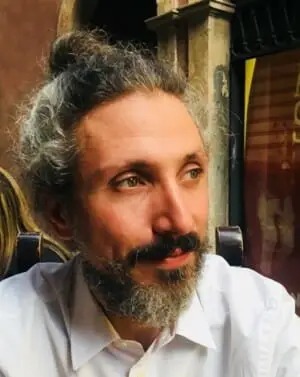Studying at the University of Verona
Here you can find information on the organisational aspects of the Programme, lecture timetables, learning activities and useful contact details for your time at the University, from enrolment to graduation.
Academic calendar
The academic calendar shows the deadlines and scheduled events that are relevant to students, teaching and technical-administrative staff of the University. Public holidays and University closures are also indicated. The academic year normally begins on 1 October each year and ends on 30 September of the following year.
Course calendar
The Academic Calendar sets out the degree programme lecture and exam timetables, as well as the relevant university closure dates..
| Period | From | To |
|---|---|---|
| Sem. IA | Sep 25, 2017 | Nov 11, 2017 |
| Sem. IB | Nov 13, 2017 | Jan 20, 2018 |
| Sem. IIA | Feb 26, 2018 | Apr 21, 2018 |
| Sem. IIB | Apr 23, 2018 | Jun 9, 2018 |
| Session | From | To |
|---|---|---|
| Sessione Invernale | Jan 22, 2018 | Feb 24, 2018 |
| Sessione Estiva | Jun 11, 2018 | Jul 28, 2018 |
| Sessione Autunnale | Aug 27, 2018 | Sep 22, 2018 |
| Sessione Straordinaria | Jan 14, 2019 | Feb 16, 2019 |
| Session | From | To |
|---|---|---|
| Sessione Estiva | Jul 16, 2018 | Jul 21, 2018 |
| Sessione Autunnale | Nov 12, 2018 | Nov 17, 2018 |
| Sessione Primaverile | Apr 1, 2019 | Apr 6, 2019 |
| Period | From | To |
|---|---|---|
| All Saints Day | Nov 1, 2017 | Nov 1, 2017 |
| Immaculate Conception | Dec 8, 2017 | Dec 8, 2017 |
| Christmas break | Dec 22, 2017 | Jan 7, 2018 |
| Easter break | Mar 30, 2018 | Apr 3, 2018 |
| Liberation Day | Apr 25, 2018 | Apr 25, 2018 |
| Labour Day | May 1, 2018 | May 1, 2018 |
| Patron Saint Day | May 21, 2018 | May 21, 2018 |
| Republic Day | Jun 2, 2018 | Jun 2, 2018 |
| Summer break | Aug 13, 2018 | Aug 18, 2018 |
Exam calendar
Exam dates and rounds are managed by the relevant Humanistic Studies Teaching and Student Services Unit.
To view all the exam sessions available, please use the Exam dashboard on ESSE3.
If you forgot your login details or have problems logging in, please contact the relevant IT HelpDesk, or check the login details recovery web page.
Should you have any doubts or questions, please check the Enrollment FAQs
Academic staff
 alex.arcozzi@univr.it
alex.arcozzi@univr.it
 augusto.barbi@univr.it
augusto.barbi@univr.it
 evita.calabrese@univr.it
evita.calabrese@univr.it
Carnero Roberto
 roberto.carnero@univr.it
roberto.carnero@univr.it

Mastrocinque Attilio
 attilio.mastrocinque@univr.it
attilio.mastrocinque@univr.it
 +39 045802 8386
+39 045802 8386
 linda.napolitano@univr.it
linda.napolitano@univr.it
 stefania.torquati@univr.it
stefania.torquati@univr.it
 nicola.turrini@univr.it
nicola.turrini@univr.it
 gianmaria.varanini@univr.it
gianmaria.varanini@univr.it
Study Plan
The Study Plan includes all modules, teaching and learning activities that each student will need to undertake during their time at the University.
Please select your Study Plan based on your enrollment year.
1° Year
| Modules | Credits | TAF | SSD |
|---|
One course to be chosen among the following2° Year activated in the A.Y. 2018/2019
| Modules | Credits | TAF | SSD |
|---|
One course to be chosen among the followingOne/two course to be chosen among the followingOne course to be chosen among the followingOne course to be chosen among the following3° Year activated in the A.Y. 2019/2020
| Modules | Credits | TAF | SSD |
|---|
Two/four courses to be chosen among the followingOne/two courses to be chosen among the following| Modules | Credits | TAF | SSD |
|---|
One course to be chosen among the following| Modules | Credits | TAF | SSD |
|---|
One course to be chosen among the followingOne/two course to be chosen among the followingOne course to be chosen among the followingOne course to be chosen among the following| Modules | Credits | TAF | SSD |
|---|
Two/four courses to be chosen among the followingOne/two courses to be chosen among the following| Modules | Credits | TAF | SSD |
|---|
Legend | Type of training activity (TTA)
TAF (Type of Educational Activity) All courses and activities are classified into different types of educational activities, indicated by a letter.
History of Contemporary Philosophy (p) (2018/2019)
Teaching code
4S01377
Teacher
Coordinator
Credits
6
Language
Italian
Scientific Disciplinary Sector (SSD)
M-FIL/06 - HISTORY OF PHILOSOPHY
Period
Sem. 1A dal Sep 24, 2018 al Nov 10, 2018.
Learning outcomes
The course aims to present the lines of development and the main currents of contemporary philosophy. The most general study is accompanied by the appropriate insights of the major figures of contemporary thought, also through the analysis of one or more of their fundamental works. At the end of the course, students will be requested to show knowledge and understanding of the presented authors and texts.
Program
The imaginary
Our philosophic tradition questioned a lot about the imagination’s statute, seen as an intermediate ability between perception and concept. In contemporary philosophy, the word “imaginary” is more common, as it implies a deeper awareness of the images, myths, symbols and poetic creations that imagination creates. The exploration of the imaginary is crucial in our era, firstly because today we are constantly threatened by a sense of unreality, but even because it is important to acknowledge the relevance of those representations that express our deeper desires, even though they are not part of pure rationality. The course will consist of an exploration of some conceptions of the imaginary in the history of contemporary philosophy.
In summary, the course will deal with:
1. Analysis of Sartre’s conception of the imaginary
2. Theme of reverie according to Bachelard
3. Conception of the imaginary linked to the literary writing’s question according to Blanchot
4. The relationship between the real and the unreal in our time, with the contribution of some scholars from the female philosophic community “Diotima”.
Sartre, Jean-Paul, L’immaginario, Einaudi, Torino 2007
Bachelard, Gaston, La poetica della rêverie, Dedalo, Bari 1999
Blanchot, Maurice, Le due versioni dell’immaginario, in Lo spazio letterario, Einaudi, Torino 1975, pp. 222-231
Diotima, Immaginazione e politica, Liguori, Napoli 2009
| Author | Title | Publishing house | Year | ISBN | Notes |
|---|---|---|---|---|---|
| Diotima | Immaginazione e politica | Liguori | 2009 | ||
| Bachelard | La poetica della reverie | Dedalo | 1999 | ||
| Sartre | L'immaginario | Einaudi | 2007 | ||
| Blanchot | Lo spazio letterario | Einaudi | 1975 |
Examination Methods
oral exam
Type D and Type F activities
Modules not yet included
Career prospects
Module/Programme news
News for students
There you will find information, resources and services useful during your time at the University (Student’s exam record, your study plan on ESSE3, Distance Learning courses, university email account, office forms, administrative procedures, etc.). You can log into MyUnivr with your GIA login details: only in this way will you be able to receive notification of all the notices from your teachers and your secretariat via email and also via the Univr app.
Student mentoring
Linguistic training CLA
Gestione carriere
Practical information for students
Documents
| Title | Info File |
|---|---|
|
|
pdf, it, 325 KB, 16/07/24 |
|
|
pdf, it, 212 KB, 02/05/23 |
|
|
pdf, it, 131 KB, 02/05/23 |
Graduation
Documents
| Title | Info File |
|---|---|
|
|
pdf, it, 109 KB, 12/07/24 |
|
|
pdf, it, 112 KB, 14/05/24 |
































